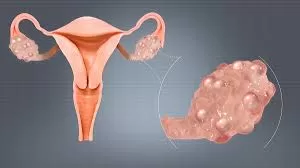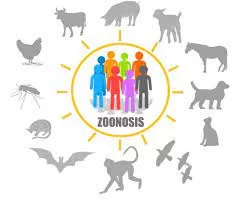New Delhi, October 2024 — In a groundbreaking initiative, the Indian Council of Medical Research (ICMR) has announced the launch of an ambitious multi-centre study to evaluate the effectiveness of two widely used drugs—Metformin and Inositol—on improving fertility and birth outcomes in women suffering from Polycystic Ovarian Syndrome (PCOS). This landmark research aims to shed light on the efficacy of these drugs in addressing fertility challenges faced by women with PCOS, a common but complex condition affecting reproductive, endocrine, and metabolic functions.
Polycystic Ovarian Syndrome, which affects approximately 10-15% of women of reproductive age globally, is one of the leading causes of infertility. In India, the prevalence of PCOS continues to rise, and its impact on fertility is profound, with infertility rates among PCOS patients estimated to be as high as 70-80%. PCOS-related fertility issues often stem from hormonal imbalances, irregular ovulation, and insulin resistance, all of which complicate the process of conception.
The ICMR study seeks to explore whether Metformin, commonly used to treat insulin resistance, and Inositol, a supplement known for regulating menstrual cycles and improving ovarian function, can improve fertility outcomes when administered as part of a treatment regimen for PCOS patients.
Addressing a Significant Knowledge Gap
While Metformin and Inositol have been used individually or in combination to manage PCOS symptoms, their specific roles in improving fertility and birth outcomes remain under-researched, especially in the Indian population. This new research by ICMR aims to address this gap through a randomized controlled trial involving women diagnosed with PCOS.
“The infertility rates associated with PCOS are concerning, and existing treatment strategies are not universally effective. We hope this study will provide the necessary evidence to improve clinical decision-making and optimize fertility outcomes for women with PCOS across the country,” said an ICMR spokesperson.
The multi-centre study will involve collaboration with research institutions, hospitals, and fertility centers across India. ICMR has issued a call for research collaborators to participate in this large-scale project. By involving multiple centers, the trial hopes to account for the diverse genetic, lifestyle, and environmental factors that may influence the effectiveness of treatments in the Indian demographic.
Potential Benefits for Women’s Health
The implications of the study are far-reaching. With improved understanding of how these drugs work to enhance fertility in PCOS patients, doctors could better tailor treatment plans to individual needs, potentially reducing the emotional and financial strain associated with infertility treatments. Moreover, the results could lead to the development of more effective PCOS management protocols, improving overall health outcomes for women.
PCOS is also linked to several long-term health risks, including diabetes, obesity, cardiovascular disease, and certain cancers. By studying the fertility-related effects of Metformin and Inositol, the trial may also provide insights into the broader health benefits of these drugs in managing other PCOS symptoms.
A Step Toward Holistic PCOS Care
This study is a critical step toward more comprehensive and individualized care for women with PCOS. While the disorder remains a major public health concern, initiatives like this are crucial in advancing our understanding of PCOS and its impact on fertility. Through its findings, the ICMR study has the potential to reshape fertility treatment strategies, offering hope to millions of women struggling with PCOS-related infertility.
ICMR’s call for collaboration in this study signals the importance of collective efforts in addressing the challenges posed by PCOS. As research progresses, the Indian healthcare system may witness a significant shift in how PCOS is managed, with a stronger emphasis on fertility outcomes and holistic care.












